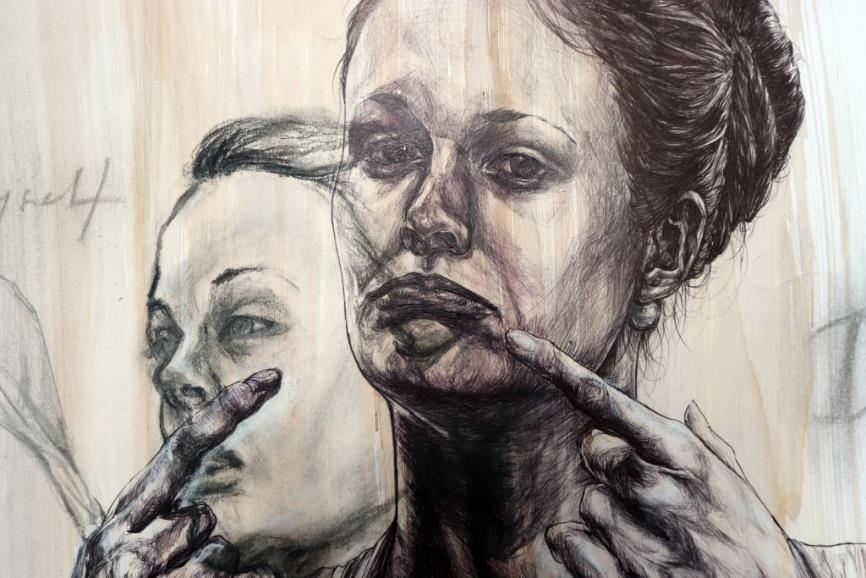
4 minute read
THEATRE - STANDARD LEVEL
THEATRE - STANDARD LEVEL
Aims:
• explore the diversity of theatre across time, cultures and contexts • develop as imaginative and skilled creators and collaborators • develop and practically apply theatre performance and production skills and elements, led by intentions • create, present and evaluate theatre work both independently and collaboratively • express ideas creatively and with competence in forms appropriate to the artistic discipline • acquire the perspectives and intentions of an internationally minded theatre-maker • develop as informed, perceptive and analytical practitioners • enjoy lifelong engagement with the arts.
Course Description:
Theatre is a practical subject that encourages discovery through experimentation, the taking of risks and the presentation of ideas to others. It results in the development of both theatre and life skills; the building of confidence, creativity and working collaboratively.
The Theatre course is a multifaceted theatre-making course of study. It gives students the opportunity to make theatre as creators, designers, directors and performers. It emphasizes the importance of working both individually and collaboratively as part of an ensemble. It offers the opportunity to engage actively in the creative process, transforming ideas into action as inquisitive and productive artists.
Students experience the course from contrasting artistic perspectives. They learn to apply research and theory to inform and to contextualize their work. The theatre course encourages students to appreciate that through the processes of researching, creating, preparing, presenting and critically reflecting on theatre— as participants and audience members—they gain a richer understanding of themselves, their community and the world. Through the study of theatre, students become aware of their own personal and cultural perspectives, developing an appreciation of the diversity of theatre practices, their processes and their modes of presentation. It enables students to discover and engage with different forms of theatre across time, place and culture and promotes international mindedness.
Requirements:
You will need to enjoy the processes of making theatre: designing, directing, and performing, as well as the theory and practice upon which performance and production skills are based. You should be able to work collaboratively as the majority of the course content will be delivered through practical workshops and projects, that are supporte d by independent reading, research and journal work. You will need to be self-motivated and possess good time management skills. GCSE Drama is certainly valuable preparation for this course though it is not a requirement. You may be asked to show your ability and passion for the subject by attending an interview. It is important to note that students taking SL Theatre attend HL lessons as three of the assessments are the same. In the past SL Theatre students have finished their Theatre course early, at the end of Term 1 in the second year and have really appreciate this extra time going into Term 2.
Careers Path:
The Arts industry is of one the world’s largest and most diverse employers, from production and performance to events management and creative marketing. The study of theatre is fundamental for pursuing careers in theatre, acting, film, television and radio. However the transferable skills which IB Theatre offers, such as critical thinking, problem solving, risk taking, versatility and flexibility, resourcefulness and being able to contribute as team player, allows students to enter a career not necessarily in the arts; many students with this qualification have progressed into careers in law, journalism, politics, public relations, media, business, education, drama/speech therapy, community/social work, advertising, event organisation and marketing.
5 TERM OVERVIEW
Core Content: Term 1 Collaborative Theatre
Involves the application of knowledge and skills through participation in theatre performances/productions.
Term 2 Working with Play Texts
Allows students to develop knowledge and skills in areas of theatre such as directing and design as a basis for the Production Proposal.
Term 3 Examining World Theatre Traditions for
Research Presentation - Task 2 Involves a practical and theoretical exploration of further theatre practices. This represents diverse cultural and historical contexts.
Term 4 and 5 Assessment Tasks:
Collaborative Theatre Project- Task 3 & Production Proposal – Task 4.
Possible areas of exploration
Voice, Movement, Proxemics, Improvisation, Peter Brook, Augusto Boal, Gecko Theatre Company, Complicite and Frantic Assembly
Four Loves (Koch), The Trial (Berkoff), Woyzeck (Buchner), The Lion an The Jewel (Soyinka).
Ritual Theatre, Kathakali, Chinese Opera, Balinese Theatre, Japanese Butoh.
Assessment tasks will take many forms including journaling, essay writing, performances, and presentations.
Option Topics: Each area of assessment involves a degree of choice when selecting topics Internal Assessment: 30% Production Proposal
External Assessment:
30% Research Presentation 40% Collaborative Theatre Project
Comparison between this course and A-Level
• IB Theatre does not involve a written exam; assessment tasks are in the form of process based practical and written work, in a range of formats. • IB Theatre does not formally assess students on performance abilities; assessment is based on contributions to workshops and practical projects based on the strengths and areas of interest of the particular student. • IB Theatre students will encounter a wider range of production roles than in A-Level and have a broader sense of theatre in an international context. • The fundamental difference from A-Level lies in the more flexible and varied approach to the curriculum and methods of student assessment.
Contact for information:
Mrs. Kate Edwards: kate.edwards@tts.edu.sg







